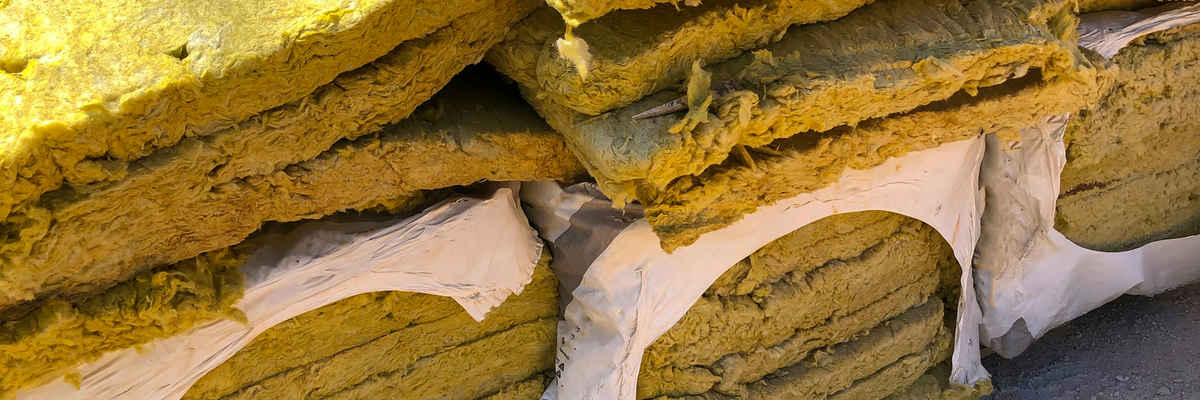What are the benefits of pipe insulation?
Pipe insulation is a material that can be wrapped around a pipe to protect it from high temperatures.
It vastly reduces the risk of frozen pipes and other comparable hazards by negating the effects of low outside winter temperatures between -18°F and 120°F. More importantly, it compensates for the thermal degradation caused by absorbing large quantities of heat from hot water or steam flowing through any part of underground piping systems.
This insulation method not only compensates for thermal degradation caused by being in direct contact with energy sources but also facilitates evacuations while retaining enough residual heat to prevent pipes from freezing while they're being drained. This includes tube sheets, trunk lines, T-stacks, bends, elbruz valves or spools, mitered pipe corners, pipe supports, valves, and pipe chases.
Keeping water in pipes at the lowest possible temperature also prevents it from freezing while being drained - an integral part of any plumbing system that's connected to a municipal water supply. Even if you get your water from a well, winter temperatures are always lower than summer temperatures.
Locating pipe insulation on or around appliances is not advisable because they leak heat into surrounding areas when turned off. Insulating tubes carrying caustic fluids would be counterproductive since they absorb heat more readily than most other materials under normal circumstances. Furthermore, pipe insulation must leave no room for condensation of moisture between the pipe and the layer of insulation wrapped around it. The right kind of pipe insulation would be thick, airtight and either made of neoprene or other similar rubber compounds.
Neoprene pipe insulation is just one kind of pipe insulation that can withstand high temperatures for decades without loosening up - even in the event that it gets punctured by accident. It's also highly resistant to chemical deterioration, ozone attack, abrasion, water penetration and weather-related damage. This pipe insulation is available in both closed cell and open cell forms to accommodate different pipe diameters. The main difference between the two types is how much compressed air they let out once unpacked, but this shouldn't be a problem because compressible pipe insulation isn't always necessary.
Call Now - (707) 562-0911
Get Your Free Quote!

How does pipe insulation work?
Pipe insulation uses either air or foam to provide an insulating effect. Foam is cheaper than air and also more durable, with the downside being difficulty in installing. Air pipe insulation takes advantage of pressure differentials easier than foam, but can't be as tightly confined as foam so is generally less effective for energy efficiency. Air pipe insulation's main benefits are that it doesn't use water and will not absorb moisture or odors like foam can, nor does it attract vermin like fleas and rats. It has a lower lifespan than foam insulation which has an average life of 5-7 years whereas air pipe can last up to 15 years without any significant change in performance. Generally there will be no official certifications such as UL or R13 which apply to pipe insulation performance standards.
One of the primary homes for pipe insulation is pipe found in water supply, including insulated pipe used for homes and pipe that feeds into municipal water systems. Insulated pipe reduces pipe corrosion by preventing moisture from finding its way into the pipe system. It also helps reduce noise when people are using water in their home because it keeps the sound contained within pipes so it doesn't bounce around rooms, making it much less noticeable. This can be especially useful in commercial applications where large amounts of ambient noise may exist. Another benefit is that insulated pipe will require less maintenance than traditional un-insulated piping since moisture cannot become trapped which contributes to rust over time.
Insulating gas pipelines requires pipe insulation with higher standards than pipe found in water supply. The pipe must be able to endure high pressure, extreme conditions and remain flexible so that it doesn't crack or create leakage points due to expansion or contraction of pipe tubing. The benefits are also vast, including reduced energy consumption for pipe transportation, the ability to reduce the threat of frozen pipe becoming a problem during winter months, and increased safety. Industries which benefit from pipe that has been fully insulated include gas, oil, chemical production and transmission as well as natural gas flowing into houses or buildings.
Call Us Now - (707) 562-0911
